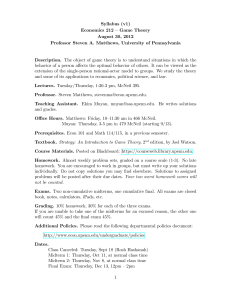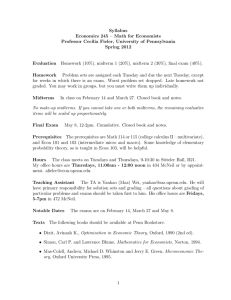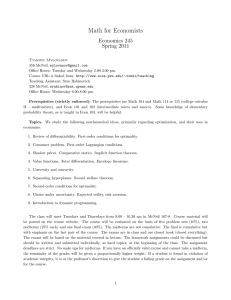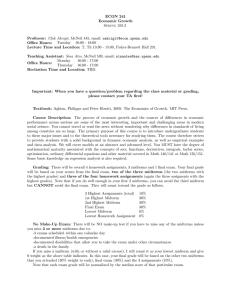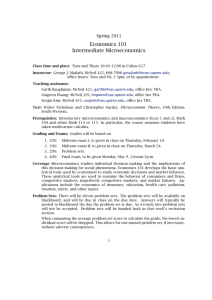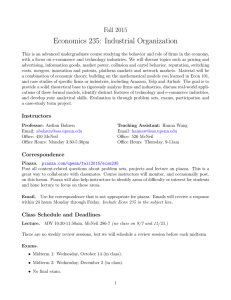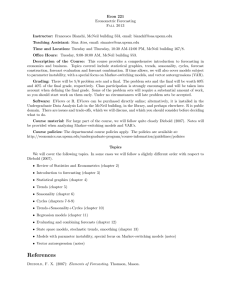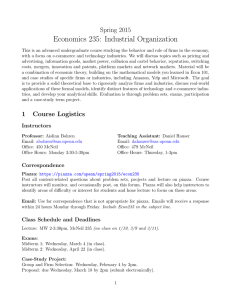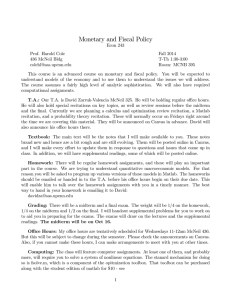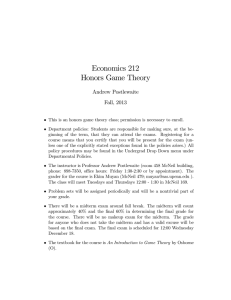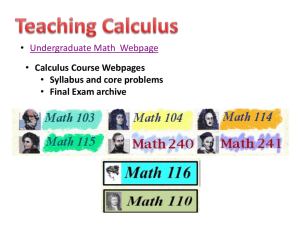Syllabus Economics 212-001 –Game Theory Fall 2014 Professor Steven Matthews
advertisement
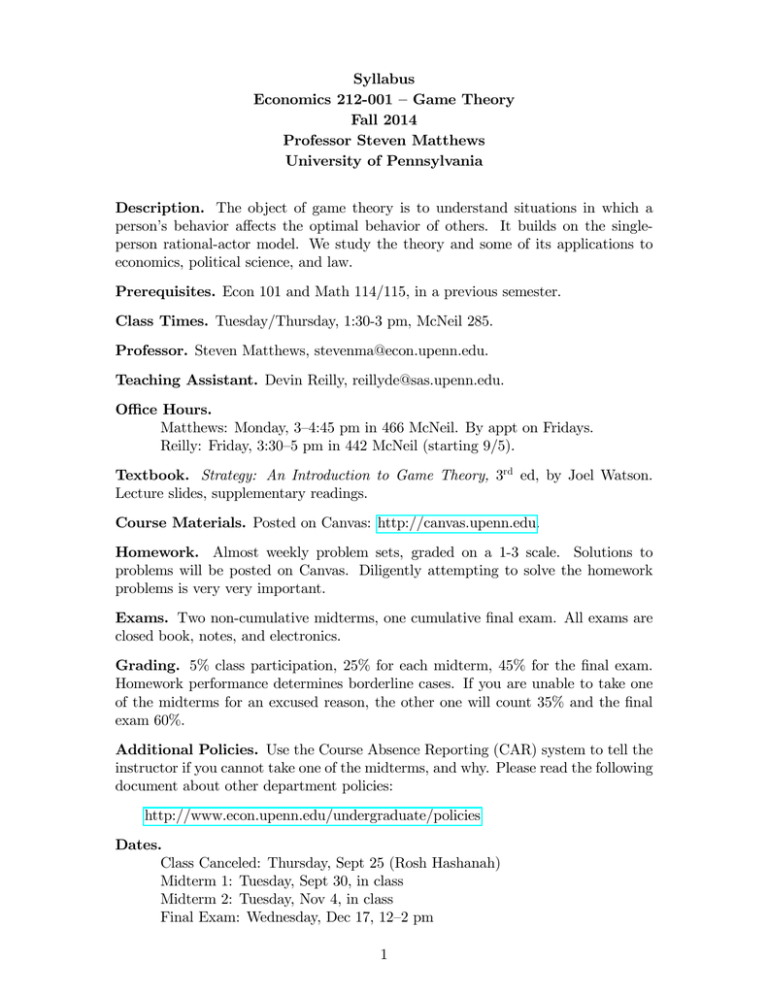
Syllabus Economics 212-001 –Game Theory Fall 2014 Professor Steven Matthews University of Pennsylvania Description. The object of game theory is to understand situations in which a person’s behavior a¤ects the optimal behavior of others. It builds on the singleperson rational-actor model. We study the theory and some of its applications to economics, political science, and law. Prerequisites. Econ 101 and Math 114/115, in a previous semester. Class Times. Tuesday/Thursday, 1:30-3 pm, McNeil 285. Professor. Steven Matthews, stevenma@econ.upenn.edu. Teaching Assistant. Devin Reilly, reillyde@sas.upenn.edu. O¢ ce Hours. Matthews: Monday, 3–4:45 pm in 466 McNeil. By appt on Fridays. Reilly: Friday, 3:30–5 pm in 442 McNeil (starting 9/5). Textbook. Strategy: An Introduction to Game Theory, 3rd ed, by Joel Watson. Lecture slides, supplementary readings. Course Materials. Posted on Canvas: http://canvas.upenn.edu: Homework. Almost weekly problem sets, graded on a 1-3 scale. Solutions to problems will be posted on Canvas. Diligently attempting to solve the homework problems is very very important. Exams. Two non-cumulative midterms, one cumulative …nal exam. All exams are closed book, notes, and electronics. Grading. 5% class participation, 25% for each midterm, 45% for the …nal exam. Homework performance determines borderline cases. If you are unable to take one of the midterms for an excused reason, the other one will count 35% and the …nal exam 60%. Additional Policies. Use the Course Absence Reporting (CAR) system to tell the instructor if you cannot take one of the midterms, and why. Please read the following document about other department policies: http://www.econ.upenn.edu/undergraduate/policies Dates. Class Canceled: Thursday, Sept 25 (Rosh Hashanah) Midterm 1: Tuesday, Sept 30, in class Midterm 2: Tuesday, Nov 4, in class Final Exam: Wednesday, Dec 17, 12–2 pm 1 Tentative Course Outline Topic Chapter Representing Games Extensive form, strategies 1 3 Normal form, beliefs/mixed strategies 4; 5 Static Games Best response, rationalizability, applications 6 8 Equilibrium, applications 9; 10 Mixed strategy equilibrium 11 Strictly competitive games 12 Contract and law 13 Dynamic Games Extensive forms and subgame perfection 14; 15 Applications: IO and parlor games 16; 17 Bargaining games 19 Repeated games and applications 22; 23 Incomplete Information Games Random events and incomplete information 24; App A Bayesian-Nash equilibrium, applications 26; 27 PBE, signaling, reputation 28; 29 Main Chapters Skipped: 18, 20, 21, 25 2
